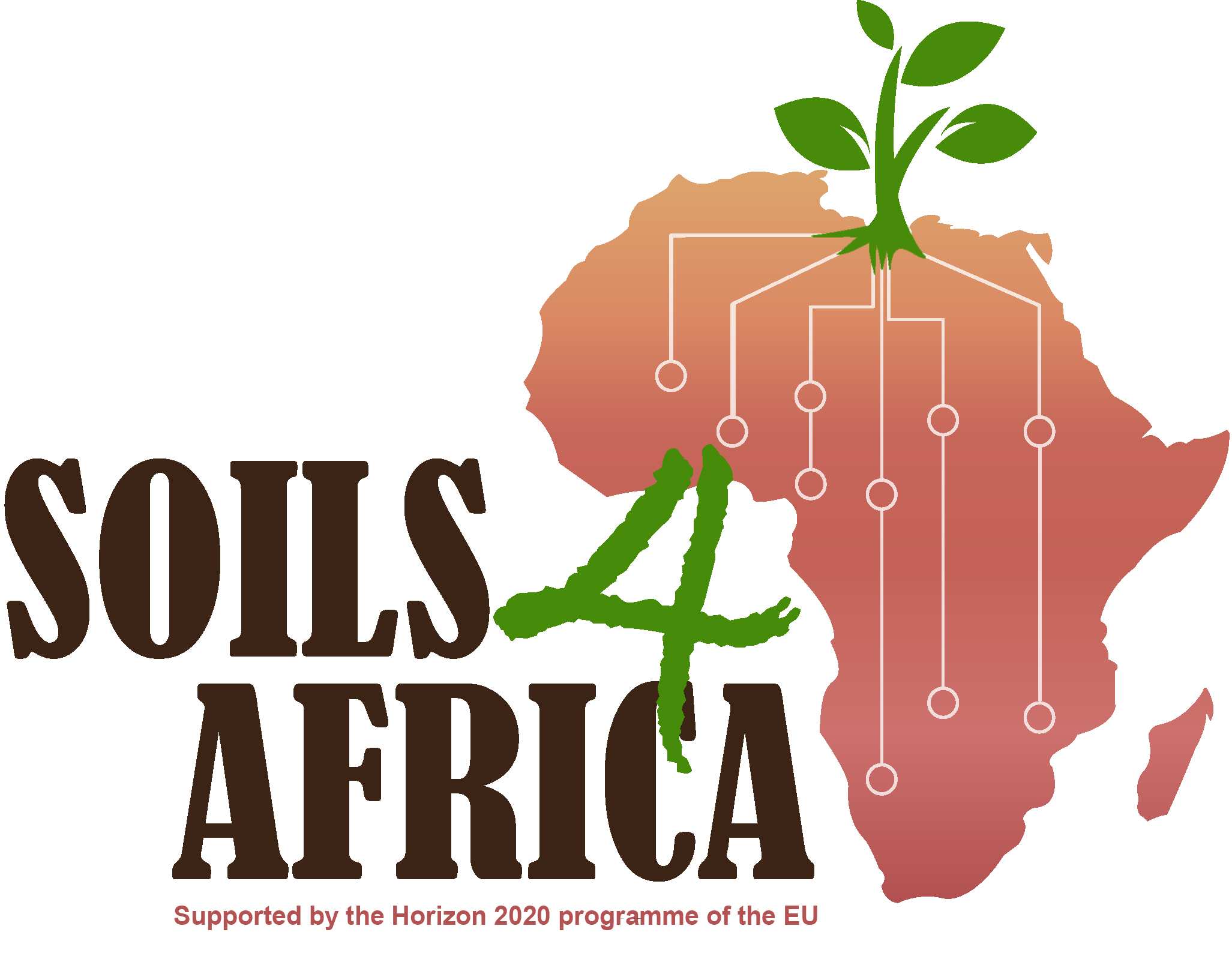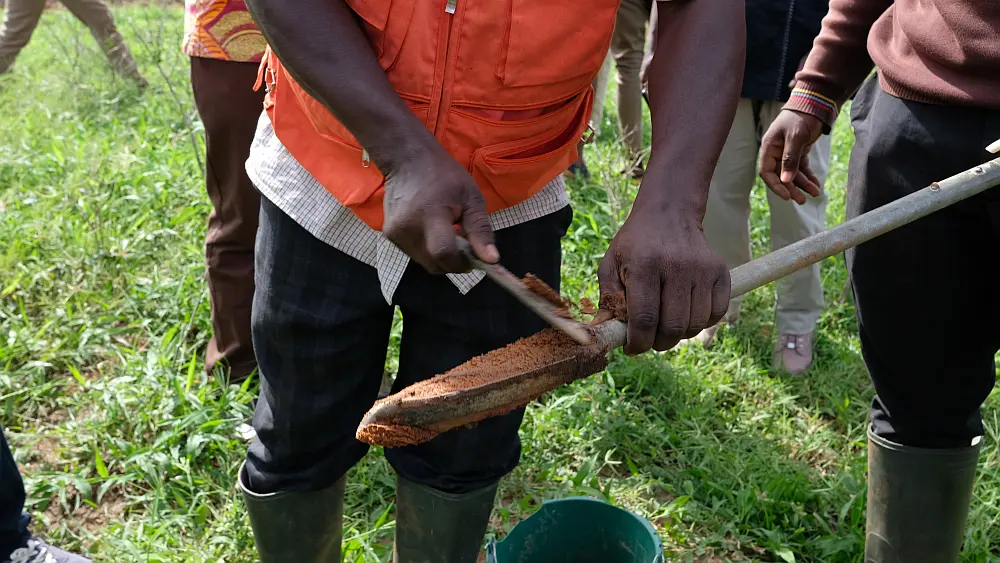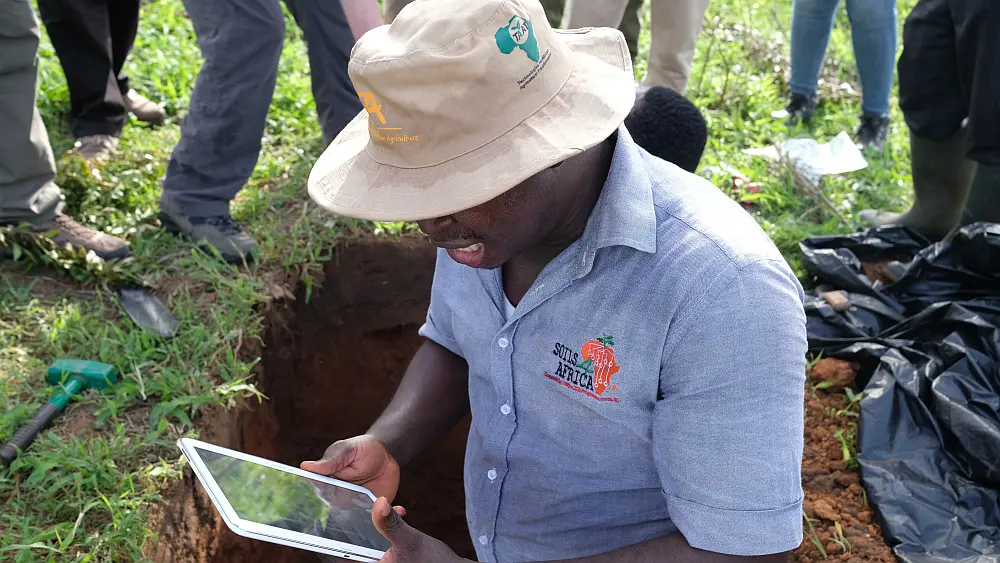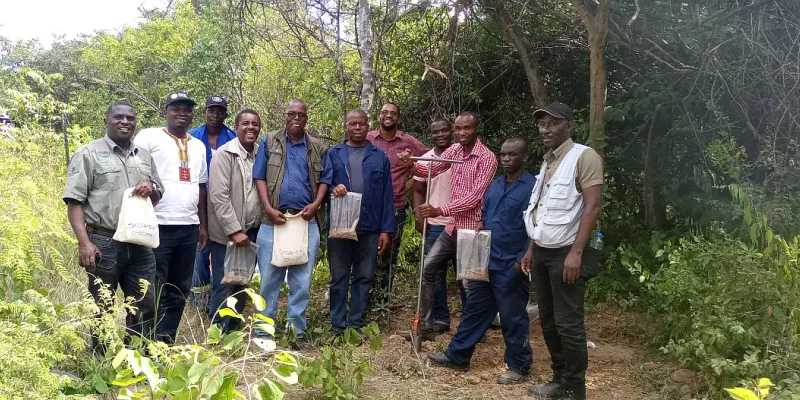Soils4Africa's lessons learned in 3 years of continent-wide implementation
European Union (EU) funded Horizon 2020 Soils4Africa project held its third Annual Project Meeting in May 2023 in Accra, Ghana. The gathering provided an opportunity to reflect on achievements and lessons learned so far by this four-year continent-wide project in Africa. The project’s ongoing work includes soil sampling on agricultural land in Africa, laboratory analysis, development of the soil information system, and stakeholder engagement.

The Soils4Africa Annual Project (APM) was chaired by the director of ISRIC - World Soil Information Rik van den Bosch and a motivating opening statement was provided by Dr Yemi Akinbmijo, executive director of Forum for Agricultural Research in Africa (FARA). FARA is the Soils4Africa partner in charge of stakeholder engagement and co-organised the APM. In his welcome speech, Dr Akinbamijo expressed his organisation’s goodwill to the project given the importance of soil, saying that soil should be treated better because “...if the soil dies, we all die”.
Soils4Africa achieved several significant results so far including:
- A map of agricultural land in Africa, using the latest remote sensing data
- A set of use cases plus supporting soil quality indicators /li>
- Protocols, Standard Operating Procedures (SOPs) and tools to guide and support the field survey, and the collection, handling and preparation of the samples.
Execution of a continental scale project, for the whole of Africa and in a partnership of organizations across Africa and Europe, can be challenging. The main outcome of the project will be an open access soil information system (SIS) for Africa. The project now begins its fourth year and, after a difficult start due to the restrictive Covid-19 conditions, has picked up pace, thanks to a committed consortium and management, engaged advisory channels and an early effort at stakeholder involvement. We gained insight in this collaborative effort that may be of value to others, please see lessons learned shared below.
Six lessons learned by Soils4Africa project
1. Effective stakeholder engagement is crucial.
On the African continent, there are rife concerns about fragmentation of research and innovation efforts. Effective stakeholder engagement is a useful first step to address those concerns.
Stakeholder engagement is crucial for achieving relevant project results. Timely identification and effective engagement of stakeholders allows for identification of synergies which, if adequately exploited, will: i) increase the relevance of project outputs, ii) increase the chance of identifying fragmentation, iii) avoid duplication of efforts and iv) help establish the actual capacity gaps and related training needs.
In Soils4Africa, the early stakeholder engagement activities involving groups from research, commodity production and marketing, advisory services, policymaking and development and research in agriculture provided insight. The stakeholder engagement activities included outreach to the EU-African Union (AU) organs FNSSA, and CAADP-PP. An outcome of the high-level outreach include a timely endorsement of the project methodology by the AU, which in turn provided a good position for further buy-in the project objectives.
The stakeholder landscape is dynamic and information requirements amongst users vary strongly, as observed and clearly highlighted at the APM this year. Coordinating the stakeholder engagement requires a timely and thoughtful strategy, including the flexibility to adapt accordingly, and sustained interest and attention.

2. Contingency plans needed to overcome enormous operational challenges arising in continental projects in Africa.
Operational challenges are complex and enormous due to the extent of spatial and temporal variation in political, administrative, physical infrastructures and other factors on the continent. The potential negative impact of this large scale on project timelines and budget could be enormous if not recognized and addressed adequately. Private sector involvement provided helping a few cases where complicated public sector administrative infrastructure became a barrier to the effective implementation of the Soils4Africa field campaign. It would be useful to sensitise funders to such issues and advocate that contingency plans be included in project proposals. In other words, project design should make room (time and budget) for contingencies that are almost certain to arise due to the nature of the physical and administrative infrastructures and the enormous associated logistics implications.

3. Impact of language differences needs adequate attention.
Differences in the lingua Franca in Africa have limiting effects on effective implementation of the project. The full extent to which lingual differences impact the project outcomes are unknown, but are likely underestimated. It affects the functioning of the project consortium, has a limiting effect on effective participation and collaboration of some key partners and limits the sense of ownership to mention a few of the impacts. Four languages: English, French, Arabic and Portuguese prove important for the effective participation within the consortium, for stakeholder engagement and for the field campaign. The impact of language differences should receive adequate attention and should be realistically budgeted for in similar actions.
4. Security constraints create instability and delays.
The impact of security constraints on the project planning (time and budget) proves to be another easily underestimated factor. Unpredictable instabilities regarding security cause delays to project implementation. This requires a great deal of flexibility and adaptability, a high level of cooperation in the project consortium and good communication between the project and stakeholders, and especially with funders.
5. Communication is crucial, and time-consuming.
Communication has been a strong tool in the project and has helped shield it against potentially disruptive unforeseen scenarios. It helped to hold the consortium together and bind the stakeholders to the action and its objectives. A good communication strategy and effective implementation proved to be crucial for successful implementation of a project like Soils4Africa. Yet, this requires high input of time and available budget.
6. Start early on a sustainability plan.
The project observed that the development of a sustainability and funding strategy for its main output (SIS for Africa) is a necessary and big endeavor, and requires stakeholder involvement. This should start early in the project to facilitate output to live beyond the duration of the project.
ABOUT SOILS4AFRICA
Consortium:
The Soils4Africa consortium is made up of 17 partners including ISRIC - World Soil Information, Wageningen University (WU), Forum for Agricultural Research in Africa (FARA), Szent István University (SZIU), The Agricultural Research Council (ARC), The International Institute of Tropical Agriculture (IITA), The Interbalkan Environment Center (IBEC), Stellenbosch University (SU), World Agroforestry (ICRAF), The Regional Centre for Mapping of Resources for Development (RCMRD), Institut Facultaire des Sciences Agronomiques de Yangambi (IFA-YANGAMBI), BUNASOLS, l'Institut des Régions Arides (IRA), Kenya Agricultural & Livestock Research Organization (KALRO) , SGS Hungary Ltd (SGS), European Joint Research Centre (EC-JRC), and MetaMeta. ISRIC is coordinating partner.
Funding:
The project receives funding from the European Union’s Horizon 2020 Research and Innovation programme under grant agreement No 862900.
Learn more about the project and it’s work here: https://www.soils4africa-h2020.eu/
